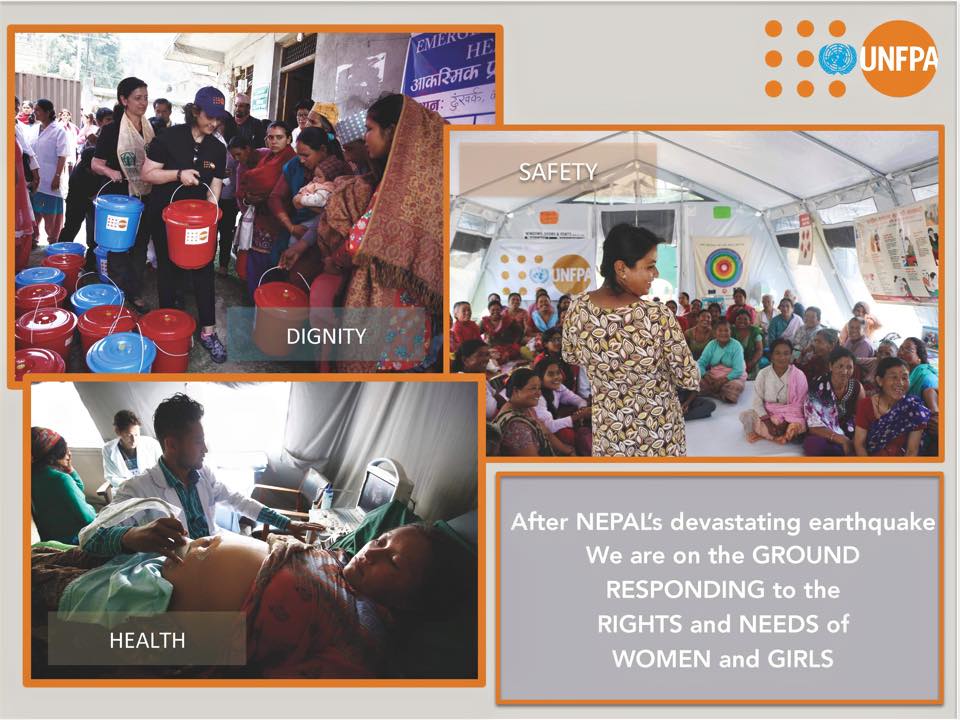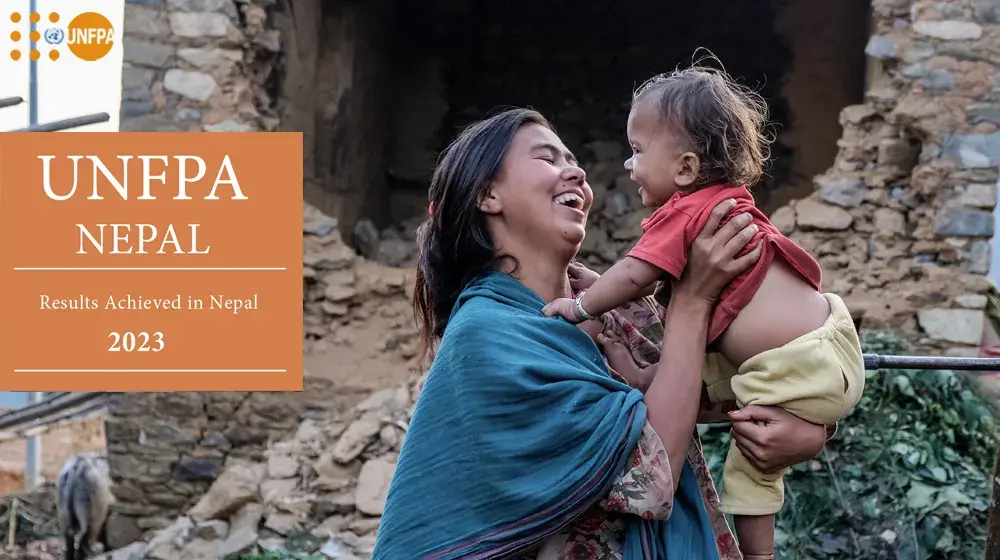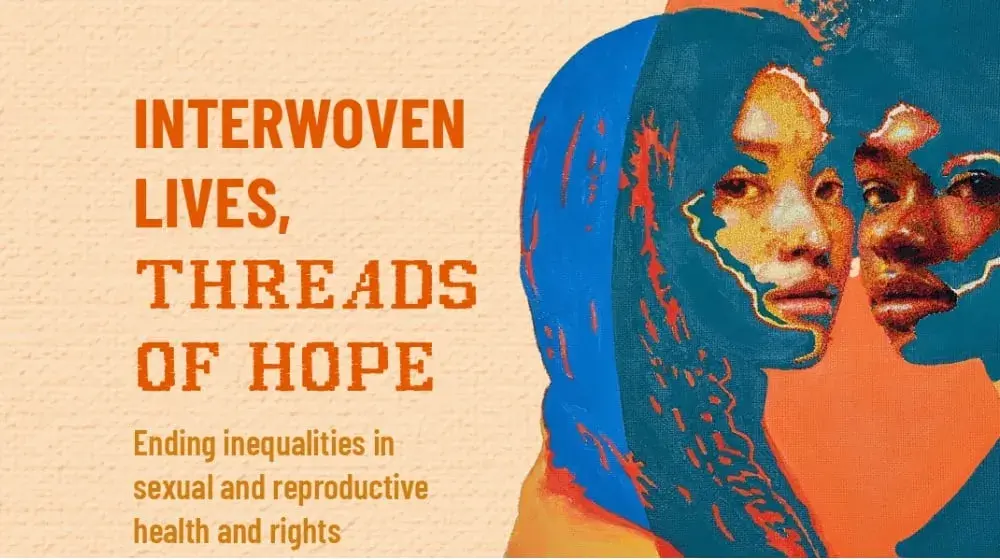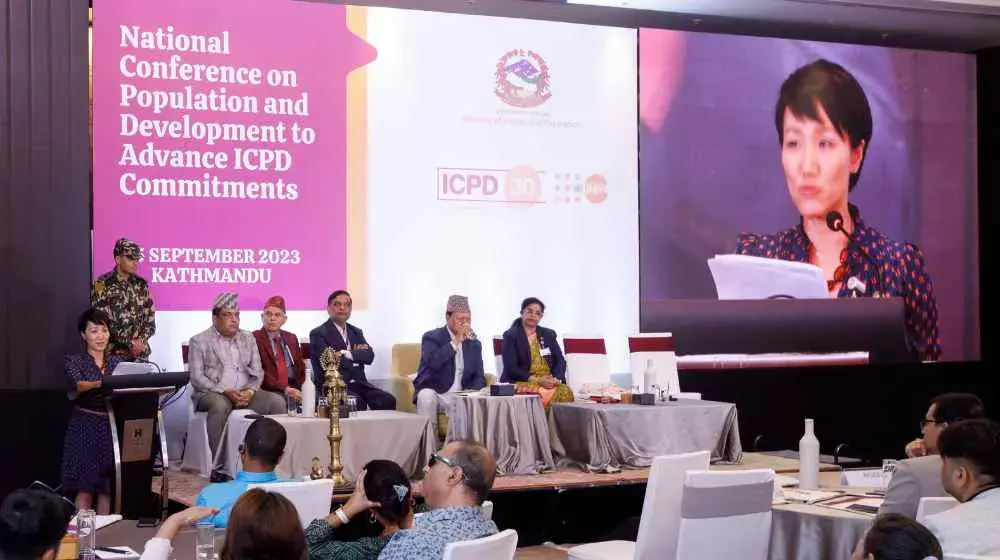
As Nepal is progressively recovering from a devastating seism, World Population Day 2015 is more than ever relevant to the country. The Day this year is dedicated to "vulnerable populations in emergencies", a crucial theme for Nepal which is going through an intensive recovery process after the country was shaken by the earthquake, followed by a series of traumatizing and destructive aftershocks.
When a disaster strikes women, children, senior citizen and people living with disabilities are among the most vulnerable population, an issue Nepal relates to in particular in this difficult year. Eight million people, alone in the 14 most-affected districts, were struck, including 1.5 million women of reproductive age.
Under normal conditions, reproductive health complications are already a leading cause of death and illness among women of childbearing age and therefore they tend to increase drastically on the onset of a humanitarian crisis.
With damaged health institutions and disrupted health and reproductive health services such as lack of skilled birth attendance, emergency obstetric care, many women, especially pregnant women, breastfeeding mothers and adolescent girls are facing increased health risks in the earthquake-affected districts.
The recently released Post Disaster Needs Assessment Report strongly confirms that the most vulnerable people in time of emergencies are more likely to endure the consequences of a crisis such as gender-based violence, sexual exploitation, HIV infection, human trafficking, child marriage or even unwanted pregnancies. Globally, an estimated one in five women and adolescent girls are likely to be pregnant in humanitarian situations.

In the aftermath of a disaster, provision of water, sanitation, food, tents and housing, are automatically delivered while specific and essential needs for women and girls are often overlooked. Providing immediate sexual reproductive health support to women and girls should also be integrated in the first aid relief package.
In addition, many women survivors become heads of household, with the sole responsibility of caring for their children. They often have to overcome immense obstacles to provide health and care for children, the sick, the injured and the elderly, and bear the heaviest burden of relief and reconstruction. As a result, they may neglect their own needs as they care for others.
Therefore this year's World Population Day's focus on "Vulnerable Populations in Emergencies", is intended to highlight the special needs of women and adolescent girls affected by the earthquake in Nepal.
UNFPA is glad to be actively supporting alongside the Government of Nepal earthquake survivors with life-saving information and services and in participating in the rebuilding of their lives with dignity. One of our priorities is to empower and safeguard the well-being of women, adolescent girls, and young people and address their specific needs and concerns.
UNFPA has been providing obstetric and contraceptive supplies, dignity kits, female friendly spaces, trained personnel to prevent and attend to gender-based violence and reproductive health to vulnerable populations in the affected districts. Our actions go beyond humanitarian response and we are determined to ensure that the needs of women, adolescent girls and young people are served throughout the reconstruction phase.
We are engaging with Nepalese youth in empowering the earthquake-affected young people by providing stress counseling and information services on sexual and reproductive health including family planning, gender-based violence, HIV/AIDS, leadership and entrepreneurship skills. By addressing women's and adolescent girls' needs, UNFPA is aiming at ensuring their access to sexual and reproductive health rights as strengthening their safety during a humanitarian crisis. Ensuring that reproductive health is integrated into disaster preparedness and emergency responses is also a crucial part of our work.
On this Day, UNFPA calls on the Government of Nepal, international community and all local stakeholders to redouble efforts to protect the health and rights of women and girls. The health, rights and the full participation of women, adolescent girls and young people needs to be prioritized in the present reconstruction phase to increase the prospects for a more stable Nepal in the near future. Also on this day, we express our full commitment to advocate for women, adolescent girls and young people to play their full role in Nepal's recovery.




